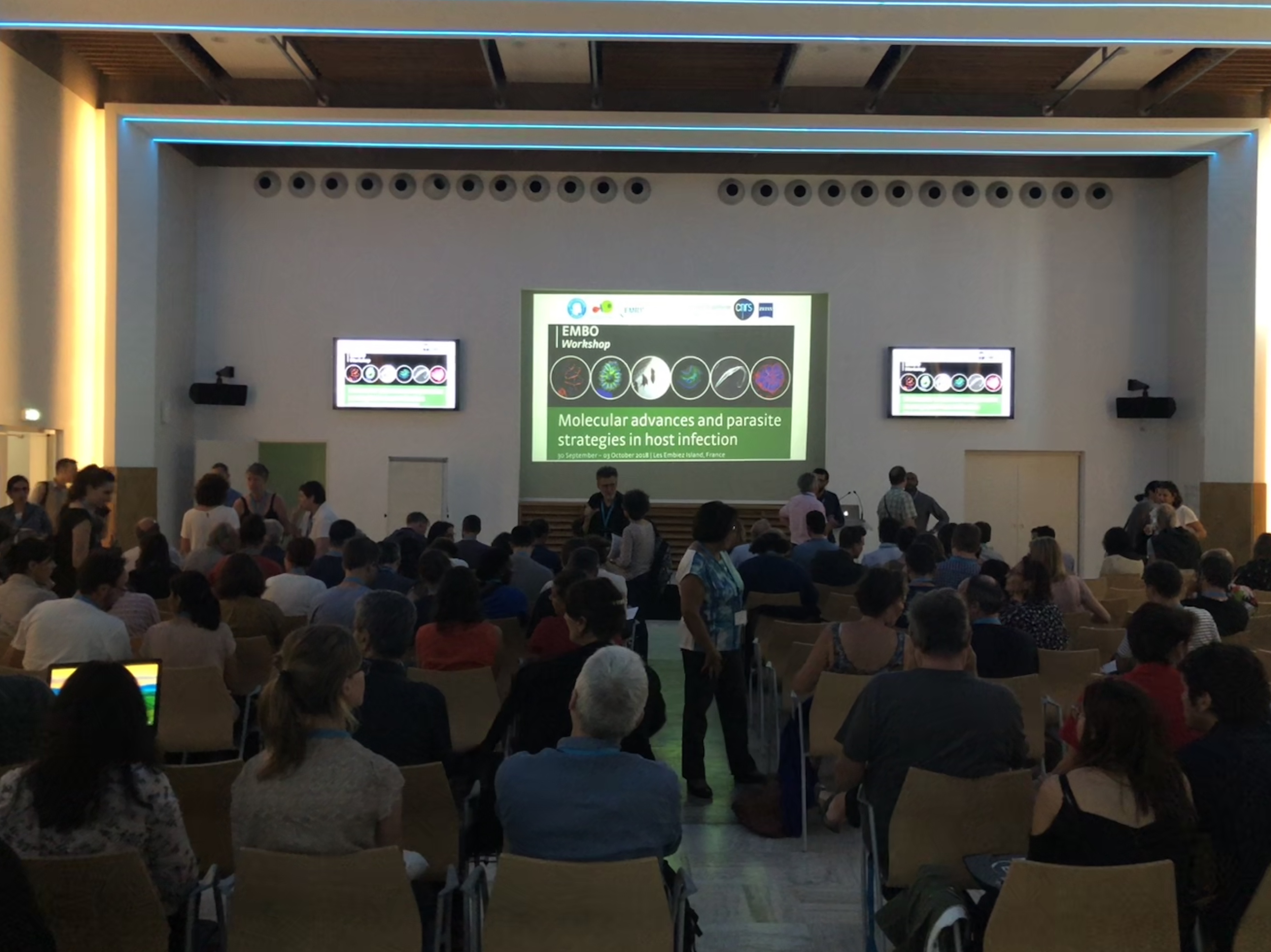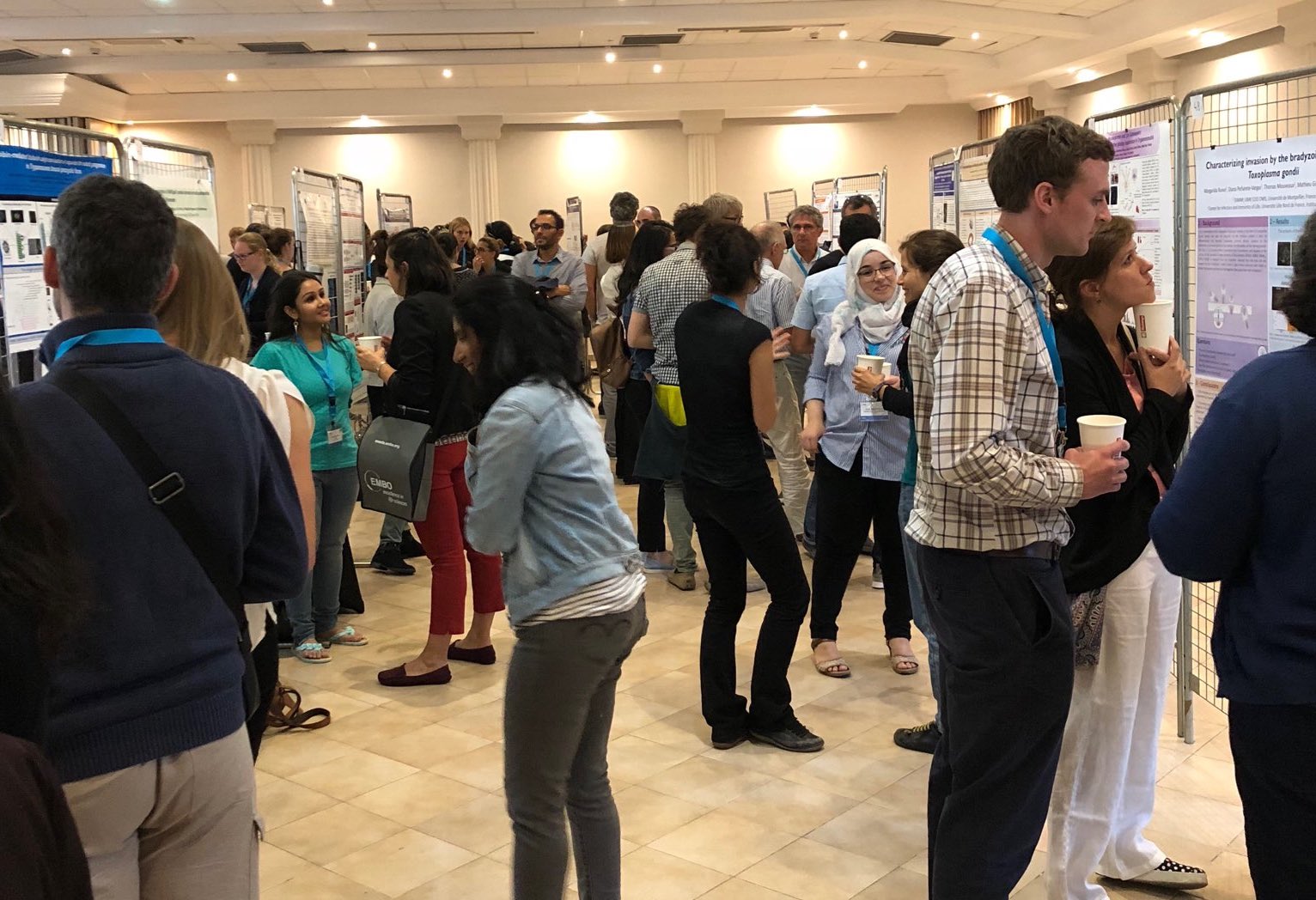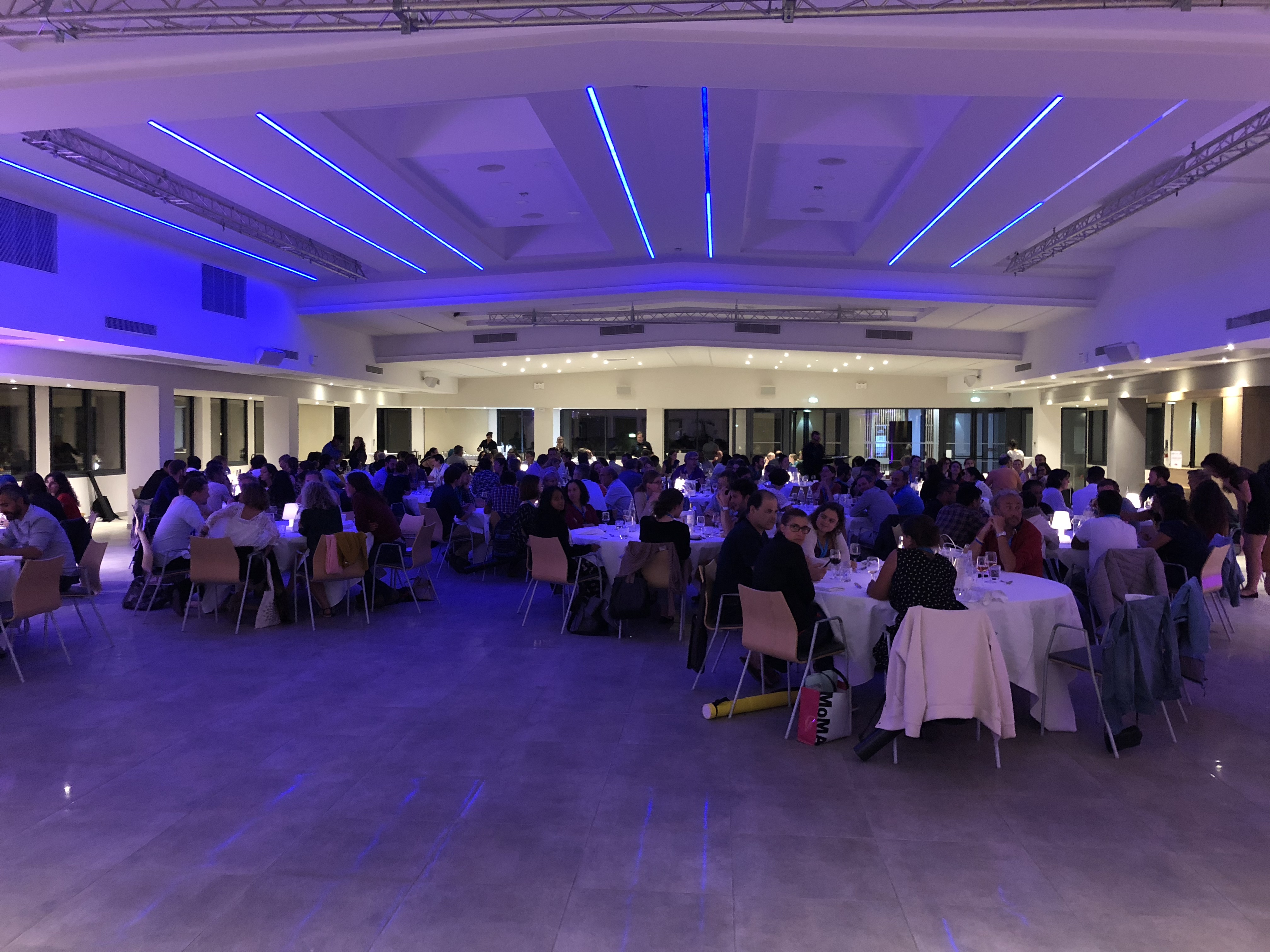

Congratulations to Eleonora Aquilini, ParaFrap postdoctoral researcher in Maryse Lebrun's Team, who won one of the “Best Full Length Talks” price at the 2018 (29th) Annual Molecular Parasitology Meeting, for her story on a new perspective on rhoptry secretion in Toxoplasma. She won a free trip and a talk to the ASTMH 67th Annual Meeting, October 28 - November 1, 2018 - New Orleans, USA (https://www.astmh.org/annual-meeting).
 |
Amandine Guerin, postdoc in Boris Striepen's lab (Philadelphia, USA - www.striepenlab.org) and former ParaFrap PhD student in Maryse Lebrun's team, received a long-term EMBO fellowship for her postdoctoral research on Cryptosporidium host cell invasion and manipulation. The EMBO Long-Term Fellowships are awarded for a period of up to two years and support post-doctoral research visits to laboratories throughout Europe and the world. International exchange is a key feature in the application process. Congratulations Amandine ! |
 |
 |
 |
 |
 |
ParaFrap supports the organization of the EMBO Workshop: Molecular advances and parasite strategies in host infection, from September 30 to October 3, 2018 on Les Embiez Island (south of France). The main objective of the workshop, supported by EMBO & ParaFrap, is to bring together the international experts in Parasitology to understand how parasite survival mechanisms are controlled, developed and organized.
Registration is now open. Deadline : 15 June 2018 - http://meetings.embo.org/event/18-parasite-infection
Page 9 of 12
Gordon Research Conference 2026 – Biology of Host–Parasite Interactions The 2026 Gordon Research Conference (GRC) on Biology of Host–Parasite Interactions will take place June 7–12, 2026, at Salve Regina University, in...
The INSERM workshop “Modern methods in molecular parasitology” will take place in Montpellier, France, from 4–6 November 2026. This event will bring together leading experts in...
The 15th CAPF (French Anti-Parasitic and Anti-Fungal Consortium) workshop will take place on 16–17 March 2026 in Strasbourg (France). This event is an excellent opportunity for students and postdoctoral researchers to participate and contribute...
Call for Applications: New Junior Research Groups at Institut Pasteur The Institut Pasteur has launched an international call to recruit new junior group leaders.This is a unique opportunity for high-potential scientists to...
JOB : Ingénieur·e d’étude / Research Engineer – Mosquito Immunity (IBMC, Strasbourg) 🇫🇷 Le laboratoire Mosquito Immune Responses recrute un·e ingénieur·e d’étude à l’IBMC (Strasbourg). La personne recrutée sera en...
Applications are now open for the 2026 Biology of Parasitism (BoP) course, taking place June 12–July 23, 2026 at the Marine Biological Laboratory in Woods Hole, MA.This intensive 6-week program offers PhD students and postdocs advanced training in...
Newcastle University offers a full-time, fixed-term position (3 years) for a Research Assistant or Research Associate in Molecular Parasitology — funded by the Medical Research Council (MRC). About the Opportunity Location:...
Multidisciplinary PhD opportunity in the fields of infectious diseases, gene regulations and molecular signalisation. Fully Funded 4-Year PhD at the University of York A fully funded PhD opportunity is available at the...
The EMBO Workshop 2025 “Host–Parasite Relationship: From Mechanisms to Control Strategies”, took place from October 5–8, 2025, on the beautiful Île des Embiez (France). Organized within the framework of the LabEx ParaFrap and...
Postdoc (M/F) in molecular and biochemical parasitology (Toxoplasma gondii) A 24-month post-doctoral position starting on January 2026 and funded by the French National Research Agency (ANR) is available in the in the...

© 2023. All rights reserved MLCOM
Notre site LabEx ParaFrap utilise des cookies pour réaliser des statistiques de visites, partager des contenus sur les réseaux sociaux et améliorer votre expérience. En refusant les cookies, certains services seront amenés à ne pas fonctionner correctement. Nous conservons votre choix pendant 30 jours. Vous pouvez changer d'avis en cliquant sur le bouton 'Cookies' en bas à gauche de chaque page de notre site. En savoir plus
Ce site utilise des cookies pour assurer son bon fonctionnement et ne peuvent pas être désactivés de nos systèmes. Nous ne les utilisons pas à des fins publicitaires. Si ces cookies sont bloqués, certaines parties du site ne pourront pas fonctionner.
Ce site utilise des cookies de mesure et d’analyse d’audience, tels que Google Analytics et Google Ads, afin d’évaluer et d’améliorer notre site internet.
Ce site utilise des composants tiers, tels que NotAllowedScript69a21d354fd18ReCAPTCHA, Google NotAllowedScript69a21d354f93dMaps, MailChimp ou Calameo, qui peuvent déposer des cookies sur votre machine. Si vous décider de bloquer un composant, le contenu ne s’affichera pas
Des plug-ins de réseaux sociaux et de vidéos, qui exploitent des cookies, sont présents sur ce site web. Ils permettent d’améliorer la convivialité et la promotion du site grâce à différentes interactions sociales.
Ce site web utilise un certain nombre de cookies pour gérer, par exemple, les sessions utilisateurs.

